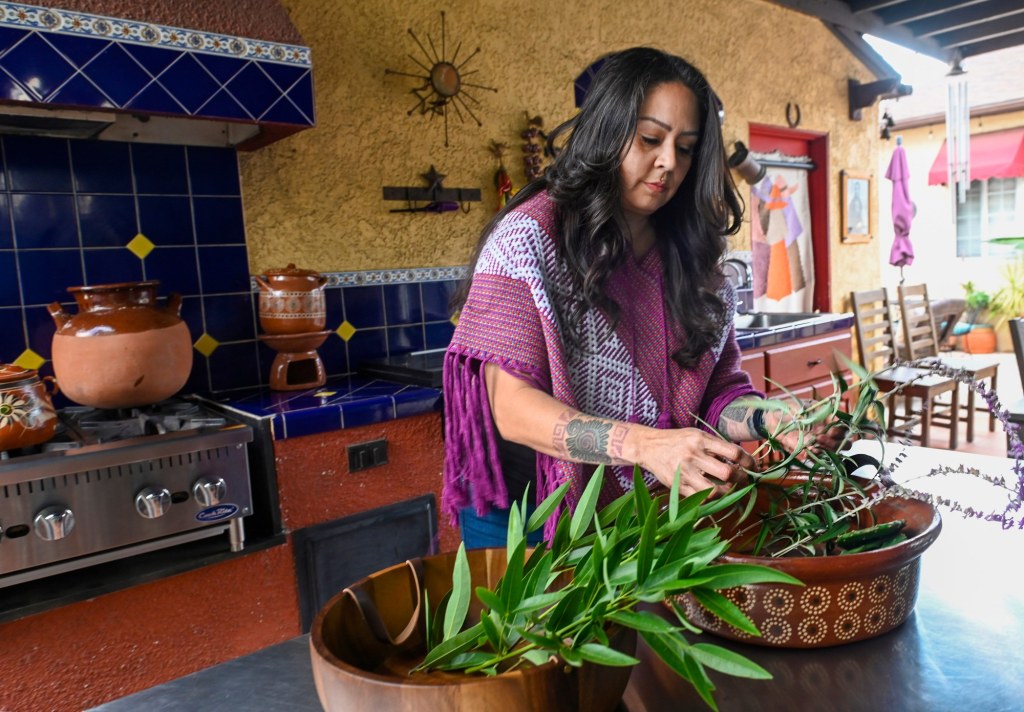Growing up, Claudia Serrato’s fondest memories were eating Mexican food with her grandparents — nopales, pipian, atole, caldo, sopa de fideo, to name a few — a diet she described as “not being animal-based, heavy or highly processed.”
“I always was so proud of my cultural heritage food, because that’s how I was raised,” Serrato, who uses ‘she’ and ‘they’ pronouns, said.
Serrato is a self-described plant-based, Mesoamerican Indigenous chef and a culinary anthropologist. They completed their dissertation in Indigenous culinary anthropology, as part of a doctorate program at the University of Washington.
Serrato, who lives in Montebello, always wanted to study food — from the way food is grown to its many health benefits. Most importantly, they said, how natural food helps and represents diverse communities.
“I was really interested in indigenous food work, in Mesoamerican food ways,” the 46-year-old said. “I felt like there was a huge gap in food studies, that it was Western-centric. What about the cultural components and aspects of food?”
Serrato’s family is from Mexico. She said she identifies with the nationality of being Mexican, while also embracing her ethnicity of being Purépecha, a group of Indigenous people from Northwest Mexico. Their family is also Zacatecas and Huastecs; the latter is a fraction of Mayan ancestry, Serrato said.
As a young adult, Serrato explored a love of natural food, always leaning toward home-cooked meals, and experimenting with recipes from her culture. Today, she uses all these same attributes in cooking.
“I was always forced to take on a national identity,” Serrato said. “I was always told I was Mexican American, but no one ever said to me ‘Do you know what that means? It means that you are an indigenous person colonized by the Spanish.’ I decided to reclaim my indigenous ancestry because that’s important to who I am today and who I am tomorrow, and also for my…
Read the full article here







